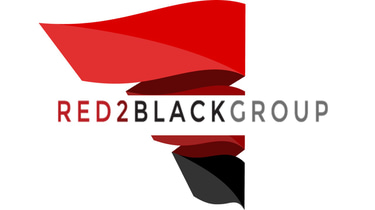Use Referrals to Grow Revenue
According to Heinz Marketing, 84% of B2B decision-makers start the buying process with a referral.
SALES STRATEGIES & TACTICS FOCUSED
Patrick Mersinger
1/11/20222 min read


Did you know that 84% of B2B decision-makers start their buying process with a referral? (Heinz Marketing)
The beginning of the sales process is building trust with each other and the products. This can take the bulk of the selling process, which is why referrals are so key. When you come from a referral, the trust is implied, and the products have been vetted. That is why people are 4x more likely to buy when referred by a friend.
If any other sales strategy promises that kind of return, every salesperson will use it daily. So why do we not focus more on referrals happening?........... Because they are not easy.
Even when clients have a great experience, getting referrals can be challenging. While 83% of consumers say they are willing to refer, only 29% actually do. The key is to make asking for and receiving referrals a natural part of your sales process. Here is how:
1. Build Value Over Time
Trust is not built overnight. To earn referrals, you must consistently deliver results and navigate challenges with integrity. Clients do not just refer great products or services—they refer businesses that stand by their promises, even when things do not go perfectly.
✅ Deliver outstanding service
✅ Own and fix mistakes
✅ Strengthen relationships by solving problems
Clients are far more likely to recommend a business with proven reliability and accountability.
2. Help Clients Recognize the Value You Provide
Your clients need to see the impact of your work before they refer you to others. During the sales and onboarding process:
✔ Identify what they value in a partnership
✔ Highlight how you're delivering on those expectations
✔ Reinforce the impact your solutions have on their business
Clients who recognize and appreciate your value will feel more confident referring you to others.
3. Ask for Referrals the Right Way
Many businesses ask vague questions like, “Are you happy with our service?” or “Would you be willing to refer us?”
Instead, ask specific, targeted questions to spark connections:
🚀 “You mentioned you were impressed with how fast we delivered your project. Who else do you know that values speed?”
🚀 “You have a great relationship with Jim—who else in your network would work well with him?”
Prompting them with a focused question makes it easier for them to think of a relevant referral.
4. Make Referrals a Company-Wide Habit
Referrals should not be a sales initiative—they should be part of your company culture.
🎯 Offer incentives for referrals—referral customers have a 16% higher lifetime value than non-referrals
🎯 Train your team on when and how to ask for referrals
🎯 Promote referral programs internally through contests and recognition
When asking for referrals becomes second nature to your team, you will see long-term revenue growth.
Final Thoughts
Referrals are one of the most powerful tools in your sales strategy. You can generate high-quality leads and accelerate revenue growth by delivering value, reinforcing impact, asking strategically, and creating a referral culture.
Start today—who in your network can introduce you to your next best client?
Sales Consultancy
Building Long Term Revenue
Connect now:
© 2025. All rights reserved.
Try our Free Elevator Pitch Tool:
